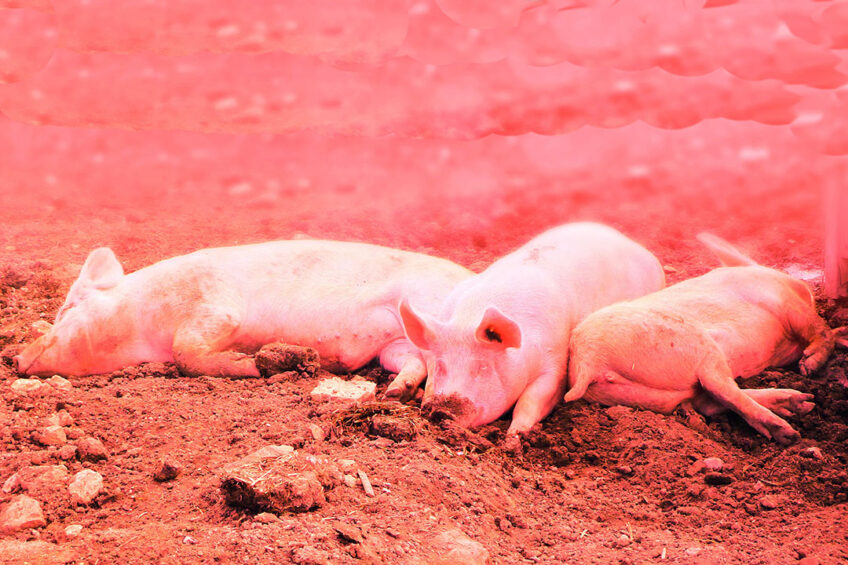New nutritional solutions in heat stress management

Heat stress (HS) compromises animal productivity, reproductive performance, health and welfare, thus lowering profitability of livestock production. New nutritional solutions are presented here to help animals cope with the negative impact of HS.
In today’s production systems animals are exposed to various types of stressors that usually occur simultaneously and have an impact on animal health, welfare and performance. If the impact of stress exceeds the ability to maintain homeostasis, the animal has to compromise productive functions. High environmental temperatures and humidity due to the changing global environment are becoming increasingly important. There is a wealth of evidence that heat stress (HS) compromises productivity, reproduction, health and welfare, and therefore lowers the profitability of livestock production in many parts of the world.
Furthermore, there is evidence suggesting that HS increases the risk of contamination of animal products with food-borne pathogens, thus representing a food safety issue.
Measuring the effects of HS in animals is not straightforward due to the complexity of physiological processes mediating the stress response. Rather than measuring a single parameter, it is mandatory to investigate several end points. Some parameters influenced by HS are shown in Table 1.
Gut integrity is affected by heat stress
HS can lead to functional disorders, inflammation, and an increased risk of infections of the digestive tract. Research has shown that HS compromises intestinal integrity, triggering increased levels of cortisol (corticosterone), pro-inflammatory cytokines and reactive oxidative species (ROS), hence resulting in inadequate levels of nutrient uptake, poor performance, suboptimal overall health, and mortality.
Therefore, minimising the negative impact of heat stress on an intestinal level is an important approach to maintain productivity and health of farm animals. There are several nutritional interventions available, e.g. the use of feed ingredients with high digestibility, optimal amino acid balance and low heat increment. Furthermore, specific bioactive compounds have shown positive effects supporting the animal under HS conditions, including electrolytes, vitamins, antioxidants and selected plant-derived compounds (e.g. betaine, plant extracts). There is an increasing body of evidence indicating that botanical bioactive compounds have the potential to alleviate HS-induced losses in performance and liveability.
Figure 1 – Effects of botanical feed compounds on (A) performance and (B) serum stress (corticosterone), inflammation (IL-6) and gut integrity (FITC-dextran) markers of broilers under HS.

Since the quantification of the impact of HS is challenging, controlled experiments are necessary to evaluate the potential of nutritional solutions in HS challenge trials.
A recent study investigated the impact of specific botanical compounds (isoquinoline alkaloids, IQs) in broilers undergoing controlled HS. The study confirmed that HS significantly reduced feed intake (-20%), growth rate (BW -20%) and feed efficiency (FCR +6%) (data not shown). However, supplementation with botanical IQs increased performance of the heat stressed birds (Figure 1a,b). Broilers were better able to cope with the impact of HS. Levels of corticosterone, the major glucocorticoid involved in the stress response of birds, and the pro-inflammatory cytokine interleukin-6 were down-regulated compared to the HS-Control. Furthermore, reduced levels of FITC-dextran in the blood indicated enhanced gut integrity. FITC-dextran is a suitable marker for gut integrity as the transfer of this compound from the intestine into the blood is usually limited and increases in case of enhanced paracellular gut permeability.
Figure 2 – Respiration rate, rectal and skin temperature in pigs (LW 32.7 kg) exposed to heat stress with or without supplementation of betaine or botanical compounds.

Pigs are also highly susceptible to HS. Like in other species, the consequences of HS in pigs include:
- reduced feed intake in order for the animal to reduce the generation of metabolic heat,
- increased blood flow to the body periphery to facilitate radiant heat loss, and
- accelerated respiration rate to increase evaporative heat loss.
In a study with grower pigs Le et al. (2020) found that supplementation with botanical IQs ameliorated the consequences of HS and helped to protect the animals against HS-induced increases in intestinal permeability in the colon. Respiration rate and body temperature were lower in pigs fed supplemented diets (Figure 2). These controlled experiments demonstrate the potential of dietary strategies to assist pigs and poultry in coping with the consequences of HS.
New nutritional solutions
Poor growth performance and health associated with heat stress are mediated by a decline in gut integrity. New nutritional solutions including specific botanical compounds help to alleviate the negative impact of heat stress on the intestinal barrier. Such strategies can be implemented to reduce production losses and to support productivity during hot seasons.
References are available on request
Photo:
Dr Tobias Steiner, Phytobiotics







